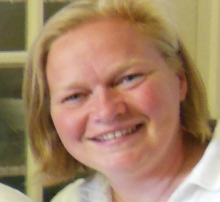Difference between revisions of "Arnemuiden women jj"
| Line 5: | Line 5: | ||
{| class="wikitable" | {| class="wikitable" | ||
|- | |- | ||
| − | | [[File:Jeanet_Jaffari.png|frameless|caption]] || <blockquote>“''I want to be a member of this community and I still love to live here and I want to see that people from outside see that it is a nice place to live, of course you have more economic | + | | [[File:Jeanet_Jaffari.png|frameless|caption]] || <blockquote>“''I want to be a member of this community and I still love to live here and I want to see that people from outside see that it is a nice place to live, of course you have more economic activities here, but also let people from this village know that they are living in a special place, because they are totally unaware. They know about maybe their grandfather’s history and that is it. When I was a girl, I was 12 years old and I went to school in Middelburg, I was a little ashamed to say I was from Arnemuiden, they wanted to know if I spoke Dutch in dialect which was unfashionable then although now it is fashionable. People looked down on you then, we are fishermen, we had a bad name ‘fish- heads’. Now the winds are changing. Now it is a nice place to live with a nice history, a nice environment and a good community. ''”</blockquote>. |
|} | |} | ||
| − | Jeanet is | + | Jeanet is an entrepreneur in Arnemuiden and through her business she has had the opportunity to participate in the ladies’ Think Tank, her idea is to create incentives to attract tourism to the town. She has lived the fishing history of the town through her mother who use to be a shrimp peeler and her father who was a fisherman. She now uses her business skills and knowledge to create identity symbols for the village. Jeanet has a knitting shop and she has created a knitting pattern in pullovers which identify fishermen in the village of Arnemuiden, as a result the village now has a sense of pride in their historical fishing origins generating financial revenue. By participating in the women’s Think Tank, Jeanet has been able to receive support from the municipality and at the same time policy makers have benefited from women’s local knowledge which has enabled them to implement cohesive social policies by supporting local initiatives such as the creation of the community flag to promote identity, tourism and ultimately business in the forgotten town. |
| − | The | + | The women’s Think Tank is an example of the importance of local networks, it shows how women are able to contribute to a process of identity transformation; in this case gender itself constitutes an important element of the positive outcome of this network, considering that a skill such as knit-ting is often developed by women. |
[[category: Socio-cultural]] | [[category: Socio-cultural]] | ||
| − | |||
{{GIFS}} | {{GIFS}} | ||
Latest revision as of 11:16, 20 November 2014
Mrs. Jeanet Jaffari, Member of women think-tank in Arnemuiden
Jeanet is an entrepreneur in Arnemuiden and through her business she has had the opportunity to participate in the ladies’ Think Tank, her idea is to create incentives to attract tourism to the town. She has lived the fishing history of the town through her mother who use to be a shrimp peeler and her father who was a fisherman. She now uses her business skills and knowledge to create identity symbols for the village. Jeanet has a knitting shop and she has created a knitting pattern in pullovers which identify fishermen in the village of Arnemuiden, as a result the village now has a sense of pride in their historical fishing origins generating financial revenue. By participating in the women’s Think Tank, Jeanet has been able to receive support from the municipality and at the same time policy makers have benefited from women’s local knowledge which has enabled them to implement cohesive social policies by supporting local initiatives such as the creation of the community flag to promote identity, tourism and ultimately business in the forgotten town.
The women’s Think Tank is an example of the importance of local networks, it shows how women are able to contribute to a process of identity transformation; in this case gender itself constitutes an important element of the positive outcome of this network, considering that a skill such as knit-ting is often developed by women.
